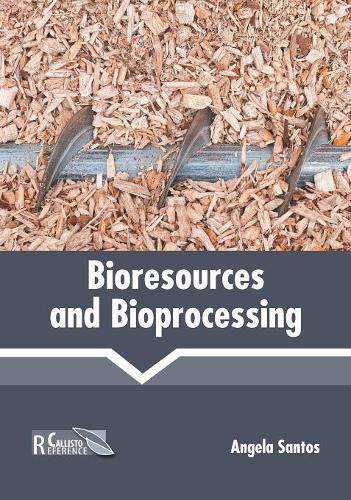Readings Newsletter
Become a Readings Member to make your shopping experience even easier.
Sign in or sign up for free!
You’re not far away from qualifying for FREE standard shipping within Australia
You’ve qualified for FREE standard shipping within Australia
The cart is loading…






This title is printed to order. This book may have been self-published. If so, we cannot guarantee the quality of the content. In the main most books will have gone through the editing process however some may not. We therefore suggest that you be aware of this before ordering this book. If in doubt check either the author or publisher’s details as we are unable to accept any returns unless they are faulty. Please contact us if you have any questions.
Bioresource engineering deals with modifying biological and agricultural feedstock to create usable products. It covers all aspects of biomass, bioremediation, biological waste treatment, bioenergy, etc. Various biochemical conversion technologies such as aerobic methods, anaerobic digestion, enzymatic method and composting are also within the scope of this field. The products developed from bioresource engineering include fibers, fuels, fertilizers, polymers, etc. Research in bioresource engineering explores animal manure management, wastewater irrigation and storm water management, besides others. The process that uses living cells and their components to develop products is called a bioprocess. The fundamental theories that are central to biological processes are the transport of energy and mass. Bioprocessing can be classified as cell bioprocessing, upstream bioprocessing and downstream bioprocessing. This book discusses the fundamentals as well as modern approaches of bioresource engineering and bioprocessing. It strives to provide a fair idea about these disciplines and to help develop a better understanding of the latest advances within these fields. Researchers and students in these fields will be assisted by this book.
$9.00 standard shipping within Australia
FREE standard shipping within Australia for orders over $100.00
Express & International shipping calculated at checkout
This title is printed to order. This book may have been self-published. If so, we cannot guarantee the quality of the content. In the main most books will have gone through the editing process however some may not. We therefore suggest that you be aware of this before ordering this book. If in doubt check either the author or publisher’s details as we are unable to accept any returns unless they are faulty. Please contact us if you have any questions.
Bioresource engineering deals with modifying biological and agricultural feedstock to create usable products. It covers all aspects of biomass, bioremediation, biological waste treatment, bioenergy, etc. Various biochemical conversion technologies such as aerobic methods, anaerobic digestion, enzymatic method and composting are also within the scope of this field. The products developed from bioresource engineering include fibers, fuels, fertilizers, polymers, etc. Research in bioresource engineering explores animal manure management, wastewater irrigation and storm water management, besides others. The process that uses living cells and their components to develop products is called a bioprocess. The fundamental theories that are central to biological processes are the transport of energy and mass. Bioprocessing can be classified as cell bioprocessing, upstream bioprocessing and downstream bioprocessing. This book discusses the fundamentals as well as modern approaches of bioresource engineering and bioprocessing. It strives to provide a fair idea about these disciplines and to help develop a better understanding of the latest advances within these fields. Researchers and students in these fields will be assisted by this book.